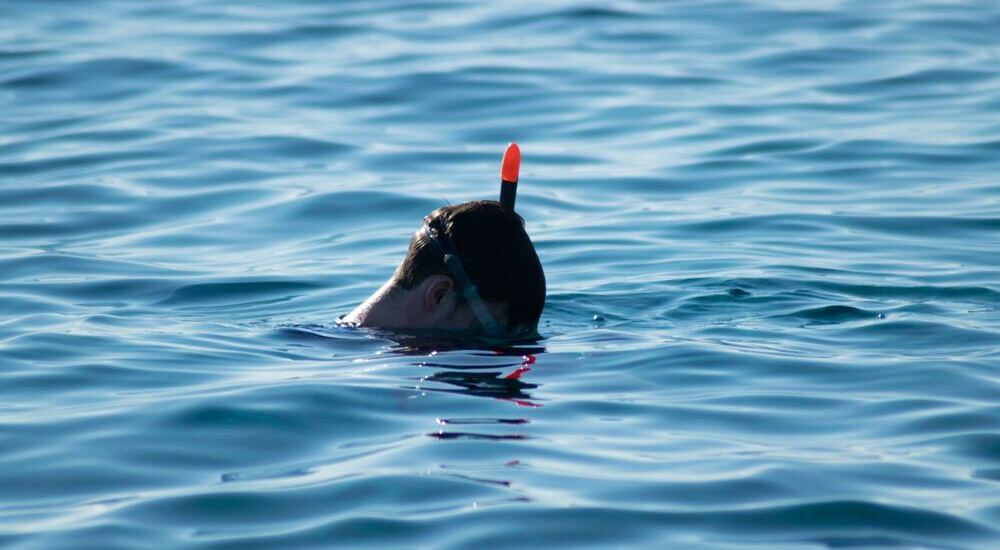Many things can cause vertigo, but snorkeling is one of the most common. When you’re snorkeling, you’re often looking up at the surface of the water from below. It can cause the fluid in your inner ear to shift, leading to vertigo.
Vertigo is a feeling of spinning or being off-balance. It can be accompanied by nausea and vomiting. It’s not dangerous, but it can be very disorienting and uncomfortable. If you have vertigo from snorkeling, it’s important to stay calm and rest until it passes.
Is it Common to Get Vertigo From Snorkeling?
Many people experience dizziness or “vertigo” when they snorkel. Some people may feel like they are spinning, while others may feel lightheaded or off-balance. It is usually caused by a change in pressure in the middle ear, which can be brought on by descending into the water. Swallowing or yawning can help to equalize the pressure and relieve the symptoms. If you still feel dizzy after a few minutes, you should come up to the surface and take a break. Vertigo from snorkeling is not dangerous and will usually go away on its own, but it can be very disorienting and uncomfortable. If you experience vertigo frequently when snorkeling, you may want to consult a doctor to see if an underlying condition needs to be treated.
What Causes Vertigo?
Many things can cause vertigo, but inner ear damage is one of the most common. The inner ear is responsible for balance, and when it is damaged, it can cause a feeling of dizziness or vertigo. Many things can damage the inner ear, including loud noises, head injuries, and certain diseases. Snorkeling can also cause inner ear damage, which can lead to vertigo.
Types of Vertigo That Can Result from Snorkeling
Vertigo can be caused by many things, including snorkeling. Three main types of vertigo can occur due to snorkeling: benign paroxysmal positional vertigo (BPPV), Ménière’s disease, and labyrinthitis.
BPPV is the most common type of vertigo and is caused when the small calcium crystals in your inner ear become dislodged and float into one of the canals. It causes a false sense of movement and can be triggered by changes in position, such as when you tilt your head or lie down. BPPV can usually be treated with a series of exercises known as the Epley maneuver.
Ménière’s disease is a disorder of the inner ear that can cause vertigo, hearing loss, and tinnitus. It is thought to be caused by a fluid buildup in the labyrinth, the part of the ear responsible for the balance. Ménière’s disease can be managed with medication and lifestyle changes, but no cure exists.
Labyrinthitis is an inflammation of the labyrinth, which is again responsible for the balance. Viral infections, such as colds, flu, or bacterial infections, can cause it. Labyrinthitis often goes away on its own but may require treatment if it persists.
How to Avoid Vertigo While Snorkeling
Vertigo is a condition that can be caused by many things, including inner ear infections, migraines, and even anxiety. While it’s not common to get vertigo from snorkeling, it can happen. There are a few things you can do to avoid vertigo while snorkeling:
- Don’t move your head too much. Quick or jerky movements can trigger vertigo.
- Keep your eyes on the horizon. Looking down at the ocean floor can also trigger vertigo.
- Take breaks often. If you feel dizzy, take a break and float on your back.
- Don’t go too deep. The deeper you go, the more pressure there is on your ears.
If you do start to feel dizzy or experience vertigo while snorkeling, don’t panic. Vertigo usually goes away on its own within a few minutes. If it doesn’t, try these things:
- Sit down and close your eyes until the vertigo goes away.
- Focus on slow, deep breaths until the vertigo goes away.
- Put ice on the back of your neck for fifteen minutes to help relieve any inflammation that may be causing the vertigo
Tips for Reducing Your Risk of Getting Vertigo
The best way to prevent vertigo while snorkeling is to avoid areas with strong currents. If you must swim in an area with a current, wear a life jacket and keep your head up. In addition, try to stay close to the bottom of the pool or ocean so you can brace yourself if you feel dizzy. Finally, be sure to take breaks often and Drink plenty of fluids to prevent dehydration.
Warning Signs of Vertigo & When To See a Doctor
A few warning signs may indicate you are experiencing vertigo and not simply dizziness. These include:
- A sensation that you or your surroundings are spinning or moving even when they’re not
- A feeling of fuzziness, lightheadedness, or a loss of balance
- Nausea or vomiting
- Sweating
- Abnormal eye movements
If you experience these symptoms while snorkeling, it’s important to come out of the water and rest. If the symptoms persist, seeing a doctor as soon as possible is best.
What To Do If You Get Vertigo While Snorkeling
If you experience vertigo while snorkeling, it is important to keep calm and not panic. Several things, such as a change in pressure, earwax buildup, or an inner ear infection, can cause vertigo. If you have vertigo, you may feel dizzy, lightheaded, or like the world is spinning around you. Vertigo can make standing or walking difficult, and you may feel like you will vomit. If you experience these symptoms while snorkeling, getting out of the water and resting safely is important. Lie down and put your head between your knees to help relieve the symptoms. Once you are out of the water, drink plenty of fluids and try to stay cool and calm until the vertigo passes.
Snorkeling can be an incredibly pleasant experience. However, it is important to be aware of the potential risks associated with any activity that involves being underwater – including getting vertigo. To avoid these issues, make sure you understand how to participate in the activity beforehand safely and always wear a life vest for added safety.

